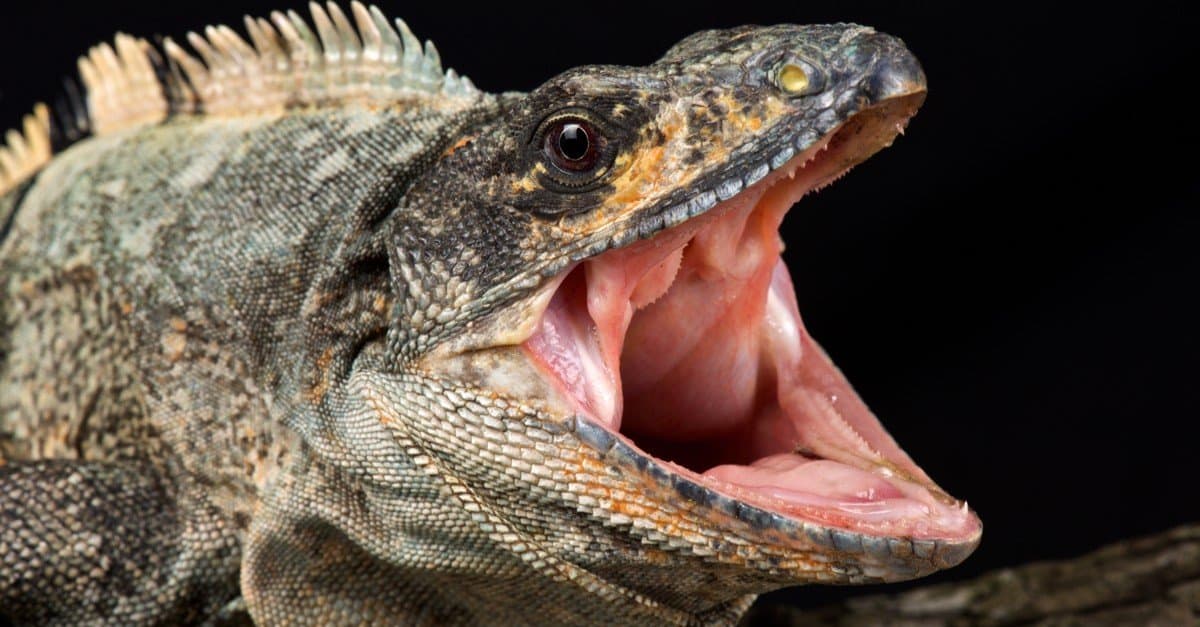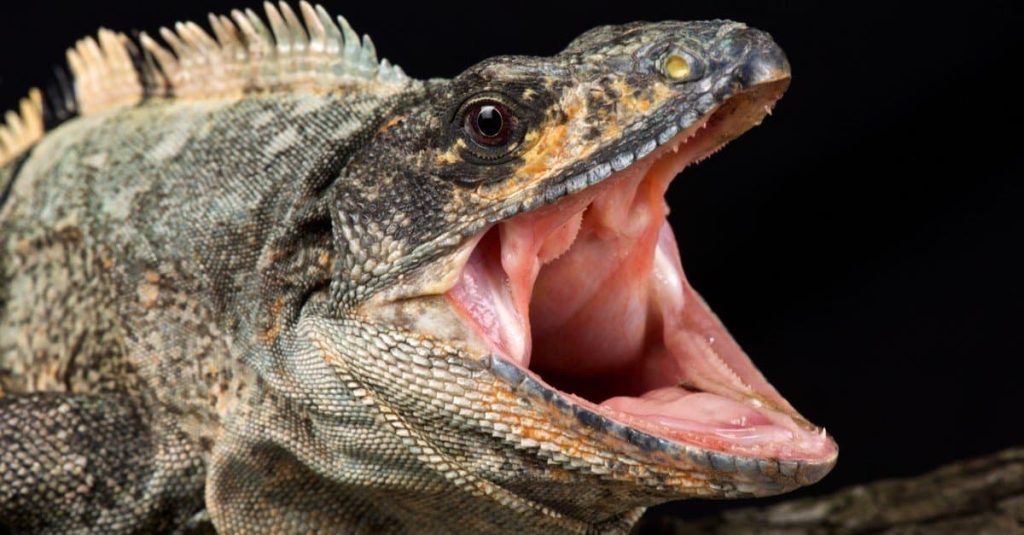Iguanas are fascinating creatures that are often kept as pets. However, one question that pet owners and enthusiasts frequently ask is, “Do iguana bites hurt?” The answer is not as straightforward as a simple yes or no, as several factors come into play.
Firstly, the size of the iguana matters. Adult iguanas have a more robust and powerful bite than juveniles. Secondly, the location of the bite is crucial. A bite on a fleshy part of the body like the arm or thigh will hurt more than a bite on a bony part of the body, such as the hand or foot. In this article, we will explore the pain levels of iguana bites and how to prevent them.
Yes, iguana bites can be painful and cause injury. Iguanas have sharp teeth and strong jaws, which they use for defense and to eat tough plants. Their bites can result in bleeding, swelling, and infection. If you are bitten by an iguana, seek medical attention and clean the wound thoroughly to prevent infection. It’s also important to remember that iguanas are wild animals and should be treated with caution and respect to avoid aggressive behavior.

Do Iguana Bites Hurt?
If you’re considering getting an iguana as a pet, you may be wondering if their bites hurt. The short answer is yes, iguana bites can hurt. However, the severity of the bite depends on several factors, including the size of the iguana and the strength of its jaw.
Factors That Influence the Severity of an Iguana Bite
Iguanas have sharp teeth and powerful jaws, which means they are capable of inflicting a painful bite. However, not all iguana bites are created equal. Here are some factors that can influence the severity of an iguana bite:
- The size of the iguana: Larger iguanas have stronger jaws and sharper teeth, which means their bites are generally more painful.
- The location of the bite: If an iguana bites you on a sensitive area, such as your fingers or toes, the bite is likely to be more painful.
- The force of the bite: Iguanas can vary in how hard they bite. A gentle nibble may not hurt much, but a full-force bite can be quite painful.
- Your own pain tolerance: Some people are more sensitive to pain than others, so the same bite may feel more or less painful depending on the individual.
Despite the potential for a painful bite, it’s important to remember that iguanas are generally not aggressive animals. They will only bite if they feel threatened or cornered, so it’s important to handle them with care.
What to Do If You’re Bitten by an Iguana
If you do get bitten by an iguana, it’s important to clean the wound thoroughly to reduce the risk of infection. Use soap and water to clean the area, and apply an antiseptic cream or ointment. If the bite is deep or bleeding heavily, seek medical attention.
It’s also important to monitor the bite for signs of infection, such as redness, swelling, or pus. If you notice any of these symptoms, see a doctor immediately.
The Benefits of Owning an Iguana
Despite the potential for a painful bite, iguanas can make great pets for the right person. They are generally docile and easy to care for, and they can live for up to 20 years with proper care.
Some of the benefits of owning an iguana include:
- They are low-maintenance pets that require minimal attention.
- They are quiet animals that won’t disturb your neighbors.
- They are fascinating creatures that can provide hours of entertainment.
- They can help teach children about responsibility and animal care.
Iguanas vs Other Reptiles
If you’re considering getting a reptile as a pet, you may be wondering how iguanas compare to other popular choices, such as snakes or turtles. Here are some factors to consider:
- Temperament: Iguanas are generally more docile than snakes, which can be more prone to biting. Turtles are also generally calm animals, but they can be more challenging to handle.
- Size: Iguanas can grow quite large, so they may not be suitable for small living spaces. Snakes and turtles come in a variety of sizes, so there are options for different living situations.
- Care requirements: Iguanas require specialized care, including a specific diet and a warm environment. Snakes and turtles also have specific care requirements, but they may be easier to provide for than iguanas.
- Longevity: Iguanas can live for up to 20 years, while snakes and turtles can live even longer. Consider your long-term commitment before choosing a pet.
In conclusion, iguana bites can be painful, but they are generally not a reason to avoid owning an iguana as a pet. With proper care and handling, iguanas can make great pets that provide years of enjoyment. Consider your lifestyle and preferences when choosing a pet reptile, and be sure to research the specific care requirements of any animal you are considering.
Frequently Asked Questions
Do iguana bites hurt?
Yes, iguana bites can be painful and cause injury. Iguanas have sharp teeth and powerful jaws, and their bites can result in puncture wounds, deep lacerations, and even broken bones. The severity of the bite depends on the size of the iguana, the strength of its bite, and the location of the bite on the body.
If you are bitten by an iguana, it is important to clean the wound thoroughly and seek medical attention if necessary. Infection is a common risk with any animal bite, and professional medical treatment may be needed to prevent complications.
What should I do if I get bitten by an iguana?
If you are bitten by an iguana, the first step is to wash the wound with soap and water. If the bite is bleeding, apply pressure with a clean cloth or bandage. Depending on the severity of the bite, you may need to seek medical attention. If the wound is deep, you may need stitches or antibiotics to prevent infection.
It is also important to consider the circumstances that led to the bite. If you were handling the iguana or provoking it in some way, it may be helpful to seek guidance on how to interact with the animal safely in the future. Iguanas can be unpredictable and may bite if they feel threatened or stressed.
What can I do to prevent getting bitten by an iguana?
The best way to avoid getting bitten by an iguana is to avoid handling the animal or getting too close to it. Iguanas can be easily stressed and may bite if they feel threatened or uncomfortable. If you do need to handle an iguana, it is important to do so gently and with caution.
It is also important to understand the body language of the iguana. If it appears agitated or its body language suggests it is uncomfortable, it is best to give it space and avoid handling it until it has calmed down.
Are there any risks associated with keeping iguanas as pets?
Yes, there are some risks associated with keeping iguanas as pets. Iguanas can carry salmonella, a type of bacteria that can cause illness in humans. It is important to practice good hygiene when handling iguanas and to wash your hands thoroughly after touching them.
In addition, iguanas require specific care and conditions to thrive, including a diet of fresh vegetables and proper lighting and temperature in their habitat. Without proper care, iguanas may develop health problems such as metabolic bone disease or respiratory infections.
What should I do if I can no longer care for my iguana?
If you can no longer care for your iguana, it is important to find a new home for the animal rather than releasing it into the wild. Iguanas are not native to many areas where they are kept as pets, and releasing them can harm local ecosystems and populations.
You can consider contacting a local reptile rescue or finding a new owner through online classifieds or social media groups. It is important to ensure that the new owner is able to provide proper care for the animal and has the necessary knowledge and resources to do so.
Why You DONT Get Bit By a iguana!! Testing iguana bite with Fake Prosthetic Hand!!
In conclusion, iguana bites can indeed hurt, but the severity of the pain depends on various factors. The size of the iguana and the force with which it bites can determine the level of pain. Additionally, the location of the bite can also impact the level of pain.
It is important to remember that iguanas are not aggressive animals and will usually only bite if they feel threatened or cornered. Therefore, it is important to approach them with caution and respect their space to avoid being bitten.
If you are ever bitten by an iguana, it is recommended to seek medical attention immediately, especially if the bite is deep or shows signs of infection. It is also recommended to clean the wound thoroughly and apply an antiseptic to prevent infection.
Overall, while iguana bites can hurt, they can be avoided with proper care and handling. Remember to always respect these creatures and give them the space they need to feel safe and comfortable.

